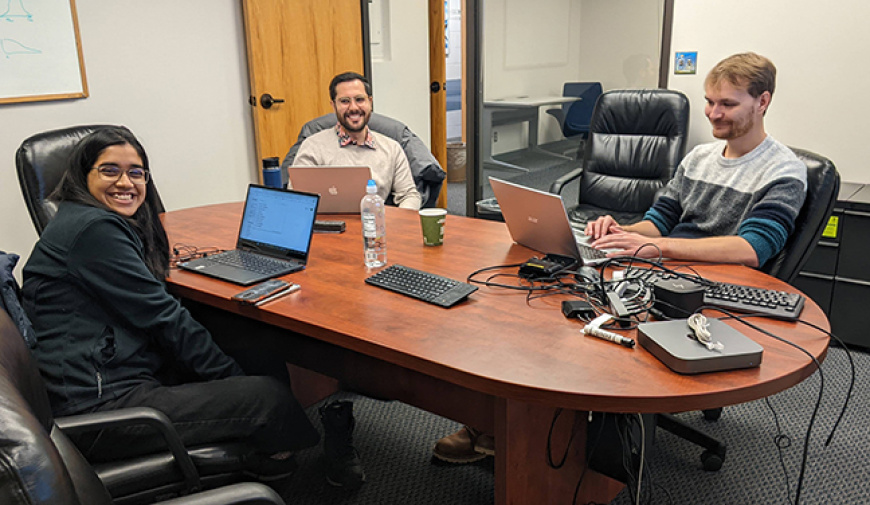
 back to all news
back to all news
SEAS hosts first "Hackathon" focused on using data science to address sustainability issues

The first University of Michigan School for Environment and Sustainability (SEAS) Hackathon, “Social Media and Visualization for Hacking Sustainability,” was held in November.
The Hackathon was held as a way to bring a diverse group of students together to assist them in the creative process of using data science and social media for sustainability, allowing them to practice their presentation and group working skills. While the term “Hackathon” may seem unusual, in this context it means using coding and data science to address sustainability issues, according to the organizers, SEAS Professors Mark Lindquist and Derek Van Berkel.
Over the course of two days, four groups of students worked together to present on a diverse range of sustainability issues. This year’s topics included environmental attitudes, social media and major U.S. tourist sites, 3D modeling, tools and approaches to analyzing multisensory spatiotemporal environmental data, social networks and pilgrimage sites, and developing tools and techniques for extracting and analyzing social media soundscapes.
Student groups investigated whether social media photographs could tell us something about behavior and activities in protected areas, attitudes toward climate change from conversations on Reddit, the impact of sound on how we experience the environment around campus, and how video games might help us better design urban greenspace.
Organizers hope the Hackathon will become a yearly event.

